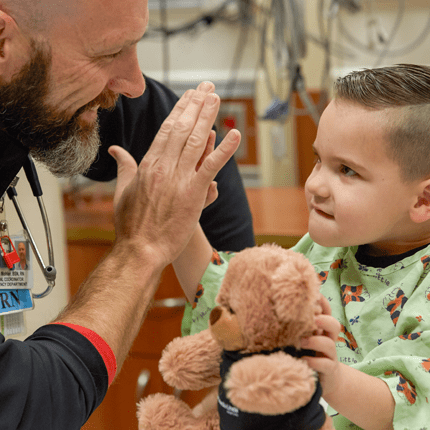What are the Advantages and Disadvantages of an Insulin Pump?
An insulin pump is a small, computerized device that continuously delivers insulin. It attempts to mimic the normal release of insulin from the pancreas. A pump delivers a small amount of insulin continuously – the basal rate. The basal rate helps keep blood sugars stable between meals and overnight, and replaces the need for your long acting insulin (I.E. Lantus/Basaglar/Levemir/Tresiba).
In addition to the basal rate you need insulin to “COVER” food and “CORRECT” high blood sugars which is called the bolus dose. You must tell the pump how many carbohydrates you are eating and what your blood sugar is following which your pump will calculate the appropriate bolus dose to be given.
Both the basal rate and bolus doses can be adjusted for certain situation, such as sick day management, hypoglycemia prevention, physical activity, etc.
Effective and safe use of the pump requires:
- Commitment to checking blood sugars at least 4-6 times/day and/or continuous glucose monitor.
- Ability and willingness to count carbohydrates
- Understanding of insulin dose adjustment based on physical activity or type of carbohydrates eaten
- Continued parental supervision
- Consistent improvement in HbA1c (preferably <10%)
- Basic understanding of diabetes, hypoglycemia, hyperglycemia and problem solving provided in diabetes outpatient education class.
- Good communication with your diabetes team and if possible, the ability to download glucose data at home to share with your diabetes team.
The main advantages of pump therapy are:
- Increased flexibility
- Precise insulin delivery in smaller amounts (0.025 units minimum)
- Reduced blood sugar variability
- Helps manage overnight and early morning blood sugar variation
- Easier to handle sick days
- More options for exercise management
- Ability to cover all carbohydrates, unless it is to prevent/treat hypoglycemia, physical activity, or otherwise discussed with your diabetes provider.
The main disadvantages of pump therapy are:
- Risk of diabetic ketoacidosis (DKA) from pump or site malfunction
- Risk of skin infection or allergic reaction.
- Cost – pumps are expensive (insurance coverage varies by plan)
- Having a visible medical device (NOTE: It is important for others to know you have a medical device in case of an emergency situation.)
Questions to ask yourself regarding pump therapy:
Are you ready for a pump?
Are you ready to be attached to a device 24 hours a day for insulin delivery?
Do you have realistic expectations (the pump is not magic)?
Are you comfortable with the technology?
Are you committed to testing blood sugar 4-6 times/day and/or continuous glucose monitor, counting all your carbs, bolusing consistently and communicating with your Diabetes Team on a regular basis?




